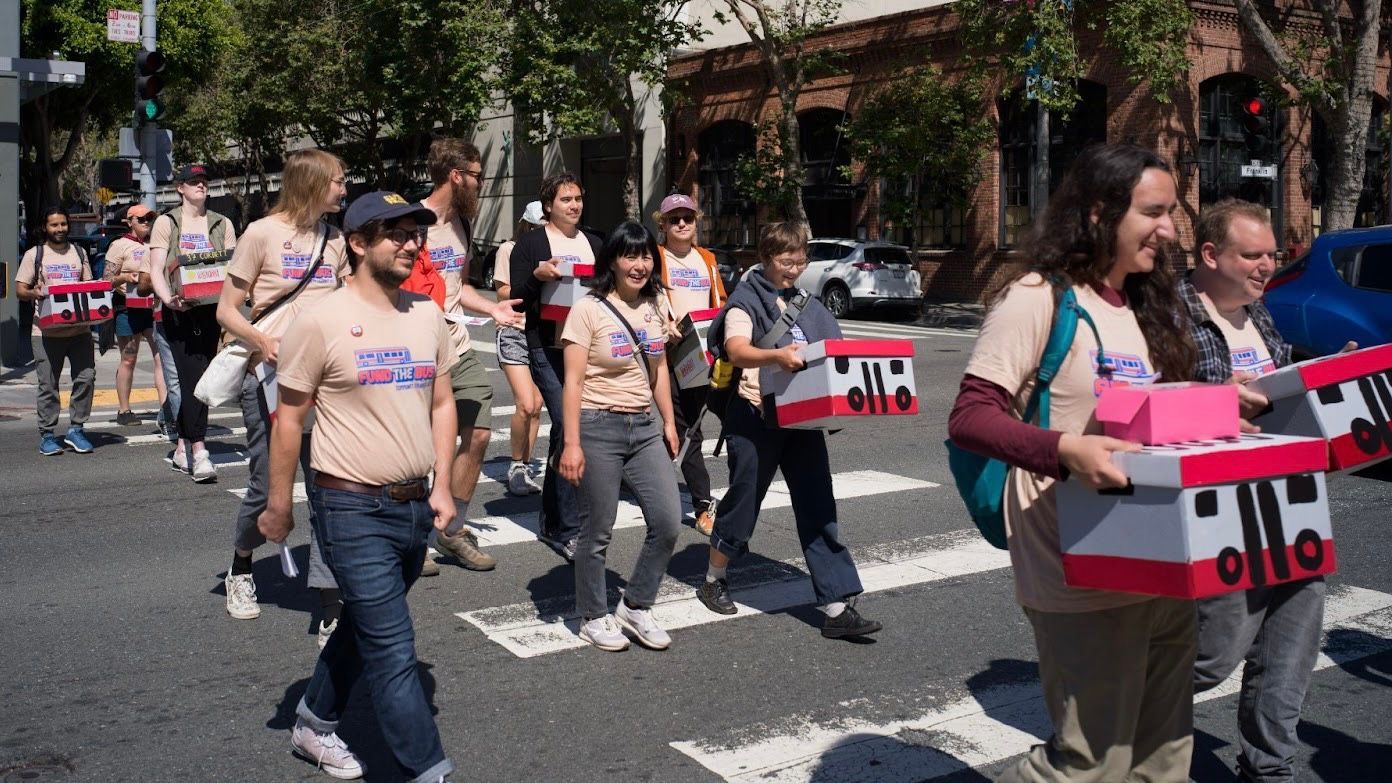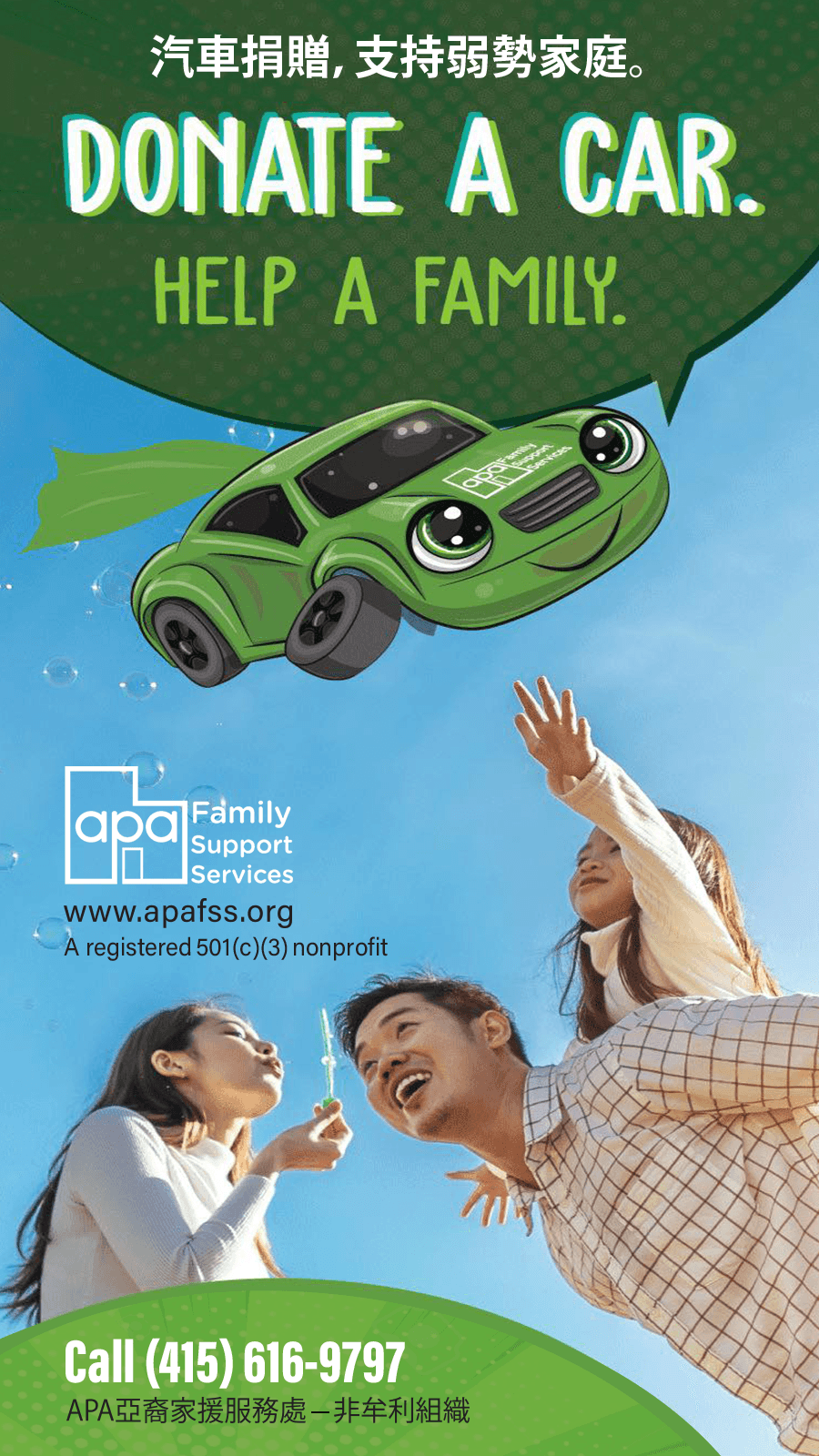New tax on ride hail companies proposed for a ballot measure to fund SFMTA


(SAN FRANCISCO) Transit advocates submitted signatures to the Department of Elections on July 5 for a ballot measure aiming to bring in more revenues for the San Francisco Municipal Transportation Agency (SFMTA), which faces a deficit challenge in the upcoming fiscal years. A new tax imposed on the ride-hail companies is the new funding source for SFMTA under the ballot measure proposal.
A group of volunteer transit advocates and supporters carried 20 boxes of 17,879 signatures to the Department of Elections for submission in order to make the measure qualified for the upcoming November election.
The measure is named Additional Business Tax on Transportation Network Companies and Autonomous Vehicle Businesses. If the measure is approved by the voters of San Francisco, the companies which would be affected include Uber, Lyft, and Waymo, an autonomous ride-hail business.
The proposed measure would create in addition to existing taxes a new gross receipts tax on transportation network companies and autonomous vehicle businesses that provide passenger service for compensation, according to the proposal submitted to the Department of Elections.
The proposed additional tax under the measure would be on their passenger transportation service gross receipts in San Francisco above $500,000.
Tax rates would be the lowest 1%, with the taxable gross receipts between $500,000 to $1 million, to the highest 4.5% for the taxable gross receipts over $25 million.
The new tax would be allocated as the funds for SFMTA services.
The organizers called the measure as ComMUNIty (Community) Transit Act. In the face of an estimated annual deficit of over $220 million starting in fiscal year 2027, the Community Transit Act is expected to generate up to $30 million a year for SFMTA operations, funding transit service and fare discount programs for youth, people with disabilities, and low-income riders, according to the statement released by the organizers. 132 volunteers gathered signatures for the measure over the last nine weeks at hundreds of events.
“While our measure will not close the entire budget gap, it is part of the solution, and our campaign is also building political will and volunteer energy that will turn out in support of future transit funding efforts,” said Kat Siegal, one of the grassroots measure’s proponents.
“Realistically, at this point, the money will likely be used to reduce the severity of service cuts from 2025 through 2027, when money from a potential regional funding measure may start to flow,” said Lian Chang, another proponent of the Community Transit Act. “But as a long-term revenue source, the money could in the future be used to improve Muni service.”
Chang, a resident of Inner Richmond District, and her husband moved to San Francisco from Boston ten years ago. As a regular Muni rider, Chang has advocated for safer streets and better public transit in San Francisco for a few years.
Chang said she had periods of time heavily relying on Muni after breaking her ankle several years ago. As a parent of a young child, she also has relied on Muni to take her son around the city. Her experience has grown her empathy for transit-dependent people, seniors, families, and people with disabilities.
"Revenue from the ComMUNIty Transit Act can be used to maintain service (reducing the severity of service cuts which may happen due to the upcoming budget deficit), improve service, and fund discount programs for seniors, youth, people with disabilities, and low-income people," said Chang. "The money comes from a gross-receipts tax on ride hail companies."
- The community opposes the removal of a historic pedestrian bridge with good Feng Shui for renovating Portsmouth Square
- Opinion: Thank you, SFUSD!
- Did the Board of Trustees rush to approve hiring a new CEO to lead the 126-year-old Chinese Hospital ?
- Sunset District voters may begin to vote on August 18 to decide if Supervisor Engardio will be recalled
- Paul Yep begins to lead the San Francisco Police Department as Acting Chief overseeing the situation of anti-ICE protests
- NAPCA Column 17: Latest information on Medicaid and Medicare
- President Trump’s tariffs have impacted Asian food markets in U.S. and Chinese Newcomers Center’s 2025 food drive
- Opinion: The Non Alien Box: A public narrative about invisible survivors








